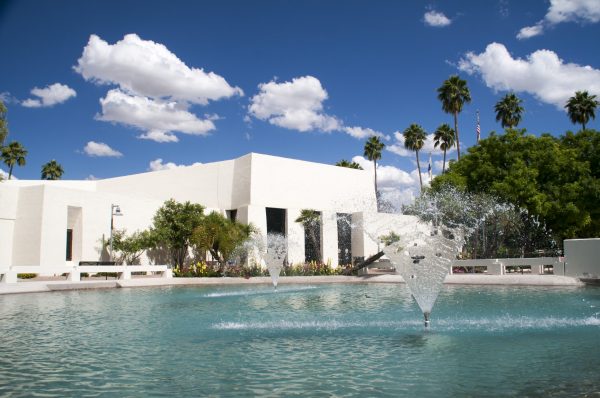
The Scottsdale City Council took the first step during its Jan. 23 meeting toward what could be an increase in how much money the city can spend every year, which, in turn, could lead to a tax increase.
The council voted unanimously to create a policy that requires the council review where the city stands in relation to the state expenditure limit every five years or whenever the city reaches 90% of the limit. The city currently stands at 94% of state expenditure limit.
Mayor David Ortega pointed out that what the council passed is just a first step that requires the council review the situation regularly.
“The (state expenditure limit law) allows us to review our situation,” Mayor David Ortega said. “Banks have that. They have stress tests and people can come in and see deposits and whatever are involved. Good practice from CPAs would say, ‘Gee are we are reaching a certain red line point?’ It’s not a bad thing.”
But by creating the policy, the council set in motion a process outlined by city treasure Sonia Andrews that would ultimately allow the city to ask the residents to allow a permanent base adjustment, raising what the city is allowed to spend every year.
“We plan to bring a resolution in March on a recommendation for a permanent base adjustment,” Andrews said. “Then, we will, no later than August, submit all of the documentation for the (state) auditor general for approval (to seek the voters’ approval to raise the limit).”
She noted a base expenditure limit increase is not a tax increase, is not an automatic budget increase and does not allow the city to spend more than it collects in tax revenue.
However, Austin Fairbanks, the only member of the public to speak on the issue during public comment, said raising the expenditure limit is a “back door” to raising taxes.
“If you can’t spend more, you have no reason to tax more,” he said.
Councilwoman Betty Janik encouraged Andrews to build a case for raising the base expenditure limit by explaining why it is necessary.
“What I would recommend, and again you probably already have it, is that you go through all the different expenses throughout the years and show how those expenses have increased,” she said. “Maybe even perhaps explain why. For example, with police. Of course those expenses have increased because we have more police on the force to give us protection for a city that has grown. I think we can eliminate some of those objections if we have the quantitative numbers.”
Andrews said the city is bumping against what it is allowed to spend because of “increasing our new programs, services and facilities, increasing our revenues and expenditures over time. Tourism expenditures was one of the major increases.“We increased our bed tax in 2010 after the 2006 permanent base adjustment. Our bed tax went from 3% to 5%, which increased our funding of tourism related expenditures.
“We also had a lot of public safety operational and facility increases – new fire stations and all that – and water and sewer operation increases as well as operating costs of new facilities.”
And new services will be required in the future, Andrews said.
“We will need a permanent base adjustment to take on any new services,” she said. “We anticipate new public safety costs, new water/sewer costs and new operating costs of the facilities that we will be bringing on line with our bond 2019 projects.”
Councilman Barry Graham voted for the resolution but cautioned that increasing the base expenditure limit “does make a tax increase easier. You can’t increase taxes without this, and I do think it makes the growth of local government likelier so it’s just something to watch and be careful of and make sure we’re disciplined.”
Councilmember Kathy Littlefield said the new policy is a way to increase transparency.
“It’s better to bring it out in the open so citizens can see what we’re doing, why we’re doing it and how we’re doing it,” she said.
The Arizona State Constitution limits how much every city and town can spend based on services offered in 1980. It does allow for increases for population and inflation but does not take into account anything like new services the city began offering after 1980 or the increased scope of the services it continues to offer.
For Scottsdale, the expenditure limit is set at $2,393 per person per year in today’s money. That is one of the lowest limits of any city in the Valley, Andrews said.
However, that formula can be changed with approval of the state auditor’s office and a vote of the city’s residents. That’s known as a permanent base adjustment.
Scottsdale has passed permanent base adjustments before, in 1998 and 2006 to pay for things like increased public safety service levels and operating costs for capital projects built as part of the 2000 bond.
Original article can be found here.
